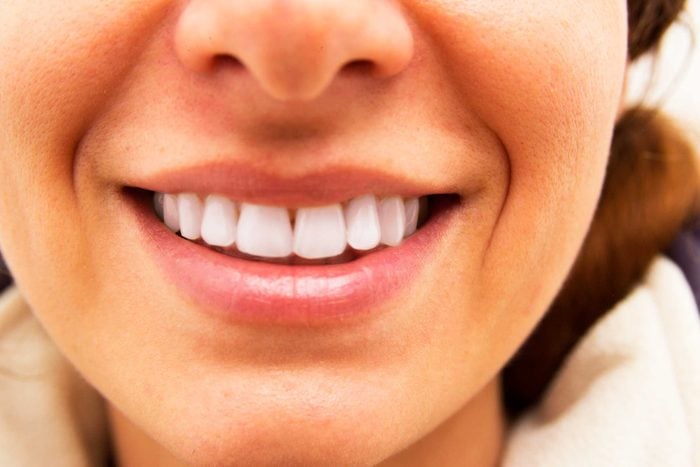
Your teeth might get brighter
Coffee is notorious for staining teeth, so switching to tea could make your smile brighter, especially if you stick with white or green tea. “Your teeth won’t get stained as much, which people often don’t think about,” says Sonya Angelone, RDN, a spokesperson for the Academy of Nutrition and Dietetics, in San Francisco. Here’s what happens to your body when you drink coffee every day.

You could lower your cholesterol
Drip coffee removes compounds called cafestol and kahweol, but unfiltered coffee, like French pressed coffee or espresso, retains them. Why should you care? Those compounds may increase LDL (“bad”) cholesterol, which could up your risk for heart attack and stroke. “A lot of people drink unfiltered coffee because they don’t think of espresso as unfiltered,” says Angelone. Swap out those coffee drinks for tea, though, and your cholesterol may improve. Don’t miss the amazing health benefits of green tea.
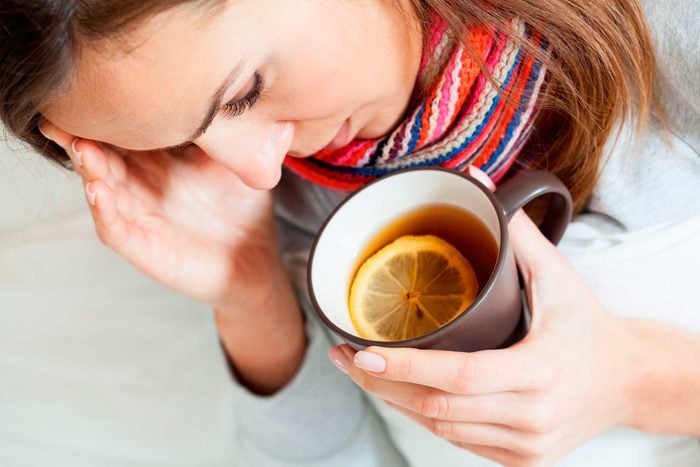
You might get headaches
Depending on how sensitive your body is to changes and how much caffeine you’re used to getting, you could feel withdrawal symptoms if you cut down during your switch from coffee to tea. “It usually happens when you have a significant change like cutting it out, but it could happen as well if you just cut down,” says Angelone. After your body gets used to the change, though, those symptoms will go away.

Your heartburn might get better
Coffee can relax the band of muscle between your esophagus and stomach. When that space opens, stomach acid could splash back up and cause acid reflux. “You may be better off having tea, even if it has a little caffeine,” says Angelone. “There’s something in coffee, but we don’t know what it is. For some people that tend to have heartburn, coffee could make it worse—even decaf.” Learn how your body changes when you quit drinking coffee.
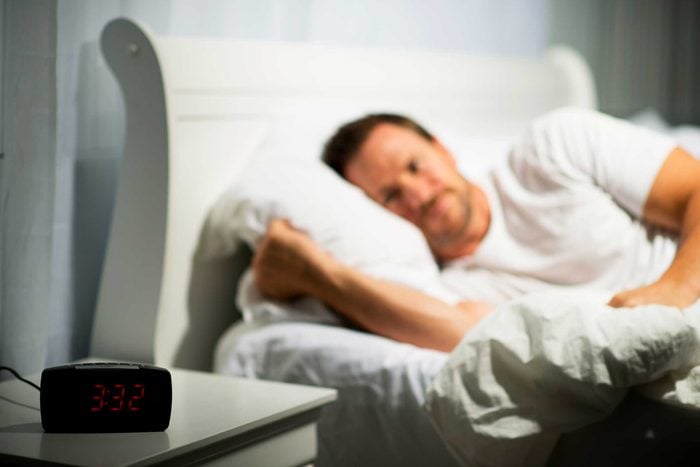
You’ll probably get better sleep
Because coffee has more caffeine than tea does, you could find that you sleep better at night with less of the stimulant. “It might help you sleep better if you’re getting less caffeine, because caffeine can contribute to restlessness and insomnia,” says Angelone. If you’re looking to try a naturally caffeine-free tea, try olive leaf tea.

You could feel less on edge
If you regularly drink more than three or four cups of coffee a day, you could be over-stimulating your body. Drinking too much coffee can make you jittery and irritable, especially if you’re sensitive to caffeine, says Angelone. Because there’s less caffeine per cup in tea, though, you’re less likely to go overboard. Find out if you show the signs of drinking too much coffee.
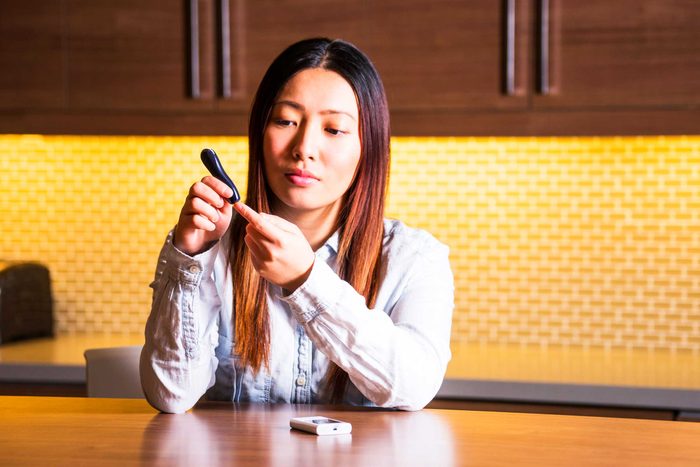
You might not lower your risk for type 2 diabetes
A review of studies published in 2014 in Diabetes Care suggested that coffee may reduce your risk for type 2 diabetes, but scientists haven’t pinned down why. Some think it’s because coffee increases proteins that carry hormones such as testosterone and estrogen, which help reduce risk of type 2 diabetes, while others say it’s because coffee increases insulin sensitivity. “Observational studies don’t always come up with a reason. They just say we see it,” says Angelone. “But when they continue to show the same things, it’s a good sign.” Regardless, you probably won’t get that same level of prevention from tea, she says.
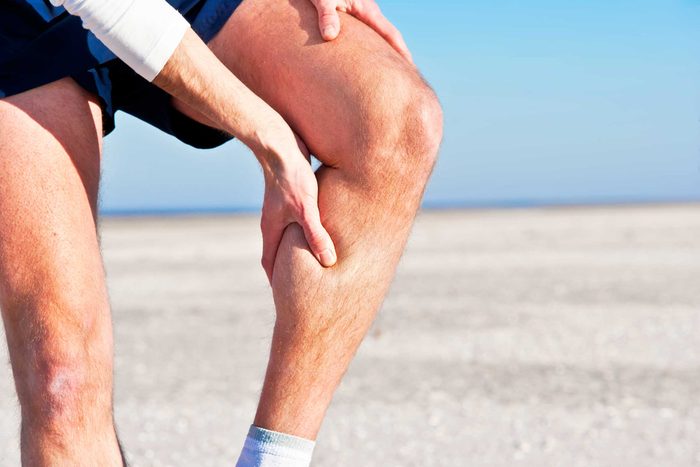
You could avoid muscle cramps
Too much coffee in your system could make it hard for your body to absorb magnesium, even though coffee contains small amounts of the mineral. “If you drink a lot of coffee and don’t get enough magnesium—which most people don’t—it would look like muscle cramps and trouble sleeping, which could be from caffeine or not enough magnesium,” says Angelone. Some drugs, such as proton pump inhibitors, can decrease magnesium levels too, so pairing them with coffee could make levels go down even more. By switching to tea, though, you can avoid the effects. Learn the truth behind these myths about how coffee affects your health.

Your mood might change
It could be from the caffeine, or it could be from the socializing people do when sipping a cup of joe, but studies, including one published in 2018 in the journal Nutrients, have shown coffee can improve mood and lower your risk for depression. Making the switch to tea could make you lose out on those benefits. “Even if it were the caffeine, it would mean you’d need twice as much tea,” says Angelone.
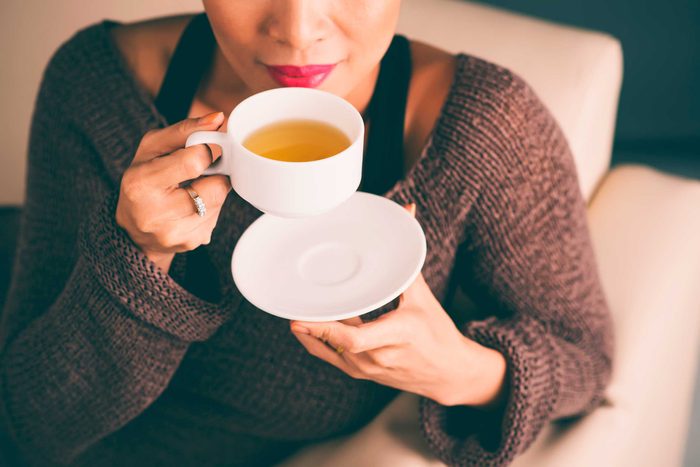
You could alter the beneficial effects in terms of cancer
Studies, including one published in 2016 in Cancer Epidemiology, Biomarkers & Prevention, have linked coffee consumption with a lower risk for colorectal cancer. While tea has been linked to a lower risk for colon and liver cancer, numerous studies, including one published in 2019 in the International Journal of Cancer, found that drinking hot tea can increase your risk for esophageal cancer. By hot tea we mean almost scaldingly hot, and this same risk may apply to the frequent consumption of any scalding-hot beverage.
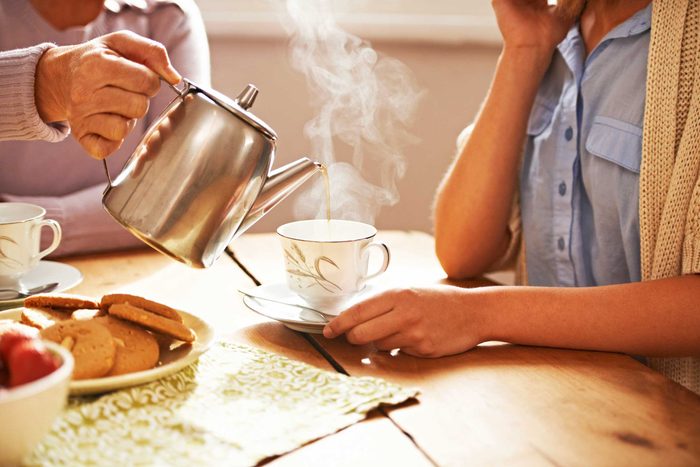
You’ll be a little better hydrated
Despite what you may have heard about caffeine as a diuretic, coffee helps keep you hydrated. Your body still holds about a third of the liquid in a cup of coffee, which isn’t much less than the half-cup it would hold from an 8-ounce glass of water. Still, tea’s lower caffeine content could make it a bit better for hydration, helping your whole body feel better. “You don’t tend to get dizzy. Your skin looks better when you’re better hydrated, and your whole body functions better,” says Angelone. “It basically detoxifies the blood.” If you find you still need your daily java fix, try these ways to make your coffee habit healthier.
